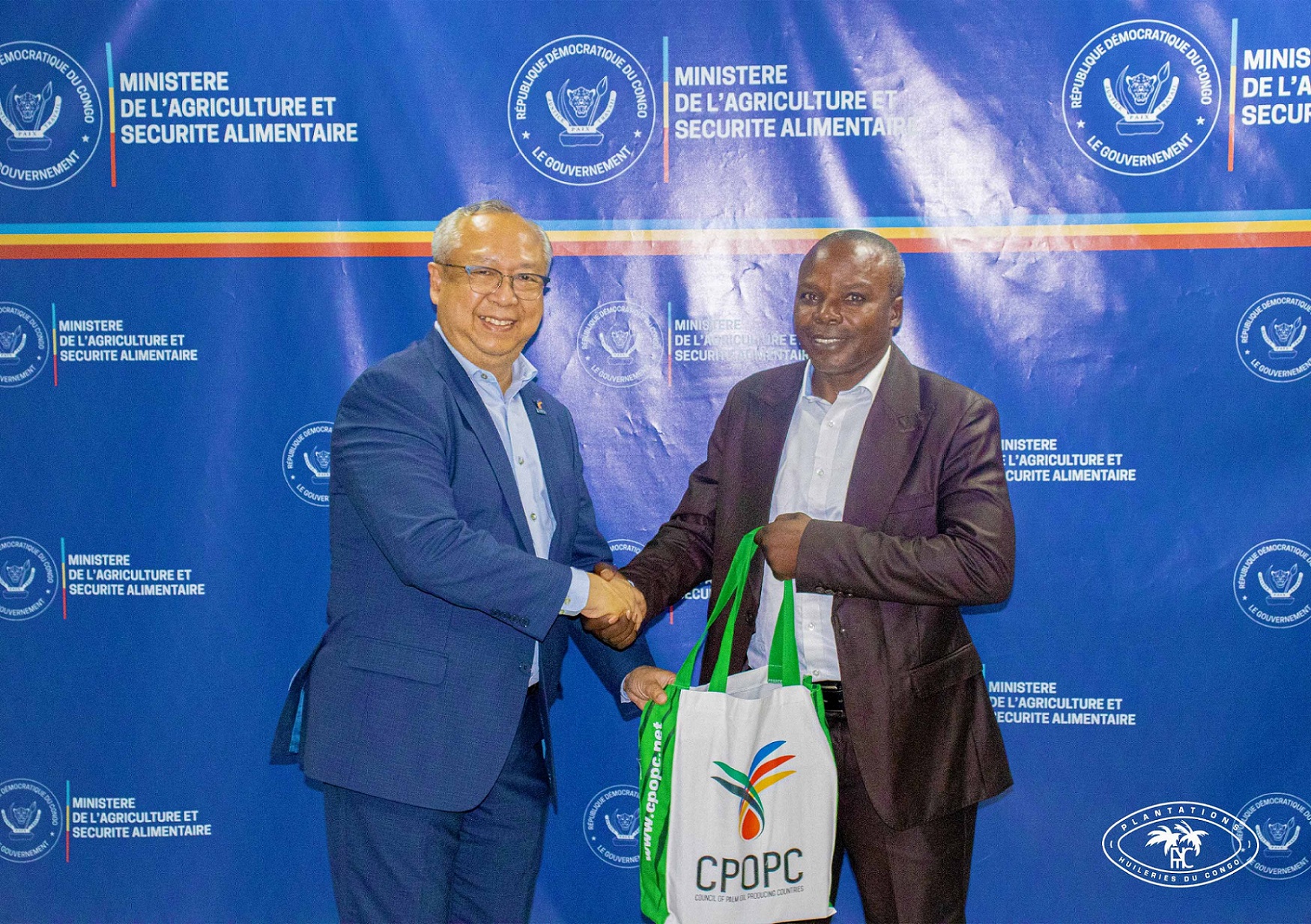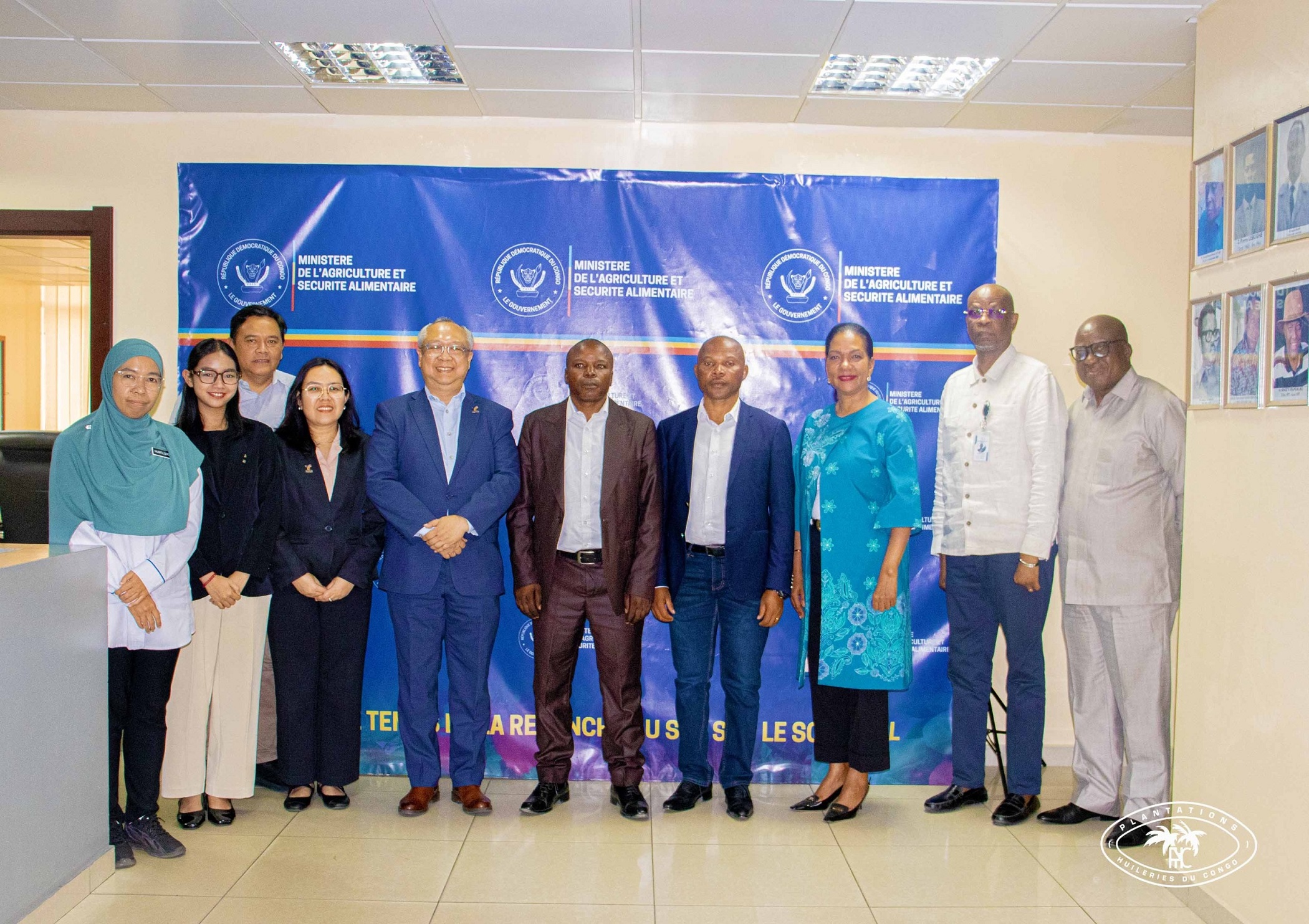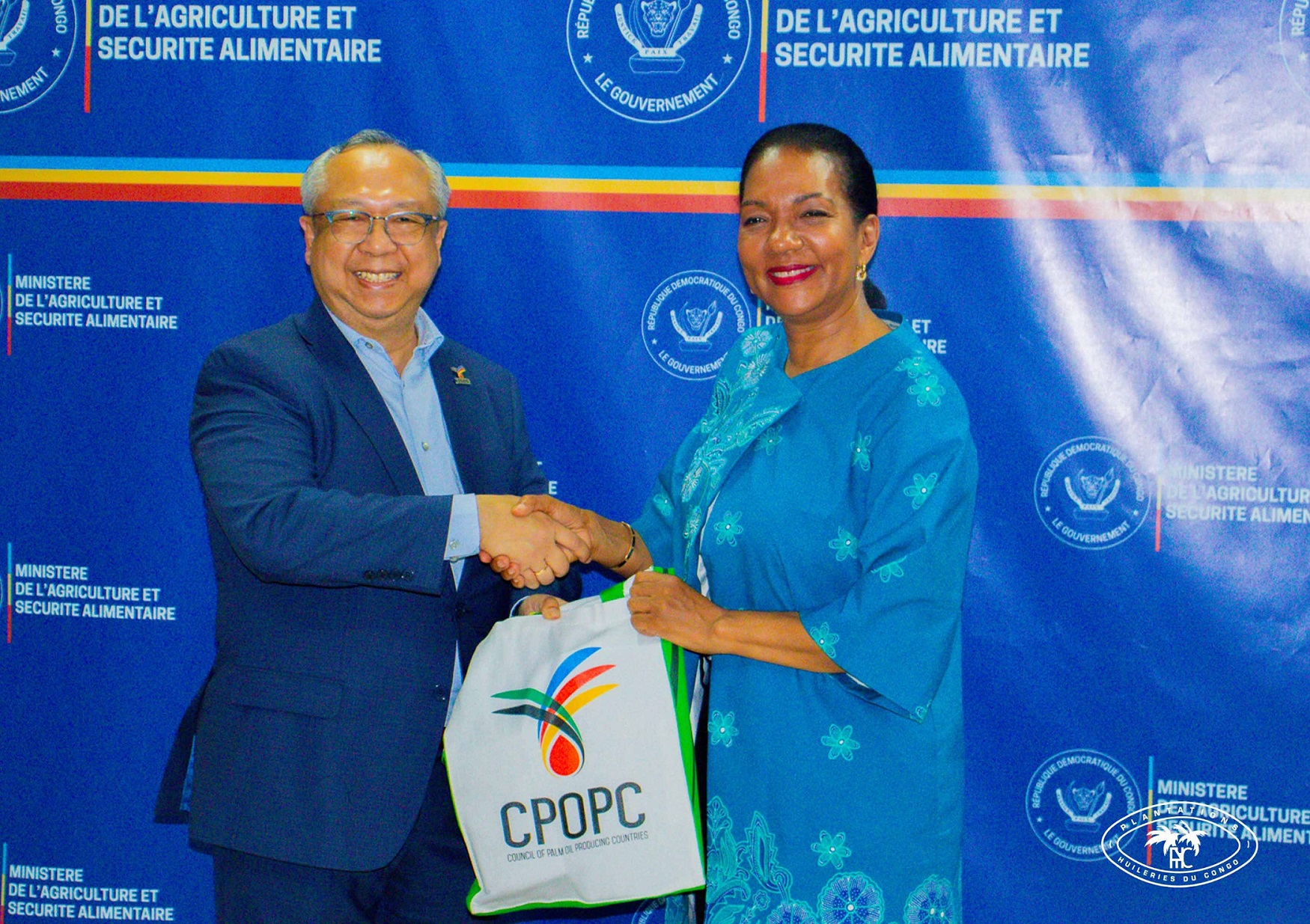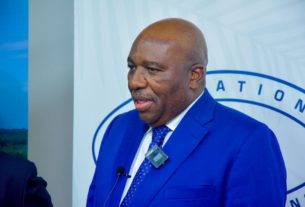The Democratic Republic of Congo (DRC) is fast-tracking the revival of its palm oil sector. Since joining the Council of Palm Oil Producing Countries (CPOPC), and with the facilitation of Plantations and Huileries du Congo (PHC), the country has strengthened its strategy to structure, professionalize, and innovate in this key economic sector. The goal: to build a sustainable and competitive Congolese palm oil industry on the international stage.
Since its official membership in the CPOPC in March 2025, the DRC has refused to remain a spectator, aiming instead to become a major player in the global palm oil market.
To realize this ambition, a CPOPC delegation led by Antonius Yudi Triantoro, representative of the CPOPC General Secretariat, is currently on the ground in Kinshasa. Their mission: to train, support, and enhance the competitiveness of the Congolese sector, aligning it with international standards.
This visit marks a historic turning point: the shift from planning to action and the beginning of a new era for palm oil in the DRC.
Training to build local expertise
From October 23 to November 1, 2025, CPOPC experts are visiting the Mongala and Tshopo provinces to strengthen the capacities of smallholders and share international best practices for sustainable palm oil production.
The program includes interactive GAP (Good Agricultural Practices) training, tailored to the realities of the field. Acting as exchange laboratories, these sessions enable CPOPC experts and local stakeholders to co-develop practical solutions adapted to the Congolese context.
During a working session at the Ministry of Agriculture, Yudi Triantoro presented the program and confirmed that results and recommendations will be shared with the Government, emphasizing “the key role of the State in coordinating, providing political support, and assisting local farmers.”

For his part, Professor Dr. Mwatsi Manyonzo, advisor to the Minister of Agriculture, welcomed the initiative, noting that the DRC has considerable agricultural potential, thanks to its vast arable lands and national programs distributing high-quality seeds for palm oil, coffee, and cocoa.
PHC: Driving the palm oil renaissance
As a leading force in the sector, Plantations and Huileries du Congo (PHC) is one of the key catalysts of this transformation. The company, instrumental in the DRC’s CPOPC membership, plays a crucial role in project implementation. “The DRC’s membership in the CPOPC represents a major milestone for the country. It opens the door to technical support, skills transfer, and hands-on training for our producers. PHC is fully committed to this initiative and positions itself as a key partner to facilitate on-the-ground implementation,” said Monique Gieskes, Managing director of PHC.
The first training sessions have already started in Yaligimba, led by experts from Malaysia and Indonesia, two global leaders in the sector. “I would like to thank His Excellency Muhindo Nzangi, Minister of Agriculture and Food Security, for his unwavering commitment to perennial crops, as well as His Excellency President Félix-Antoine Tshisekedi Tshilombo, for his vision of ‘soil taking revenge on the subsoil,’” said Monique Gieskes, adding that the DRC’s palm oil sector is now on a clear and promising trajectory, with innovation, sustainability, and inclusion as its development pillars. “Together, let us continue building a strong, sustainable Congolese palm oil sector that drives shared prosperity,” she concluded.

A thriving local market
Alongside its mission, the CPOPC conducted a field study on the Congolese palm oil market. Findings: unrefined red palm oil remains dominant in kitchens, prized for its culinary and cultural value.
In the refined segment, competition is intensifying between local and imported products. Notably, no products bear the “palm oil-free” label, reflecting the strong acceptance and integration of this resource in Congolese diets.
However, a clear gap emerged: the lack of sustainability certifications (such as RSPO). While this is a challenge, it also represents a golden opportunity for Congolese producers to align with international standards and access new markets.
Building a globally competitive sector
These initiatives demonstrate the DRC’s commitment to rebuilding a strong, sustainable, and inclusive palm oil industry.
With the support of the CPOPC and the leadership of PHC, the country now benefits from technical assistance, skills transfer, and a cooperative framework that supports smallholders, professionalizes the sector, and stimulates local economic growth.



